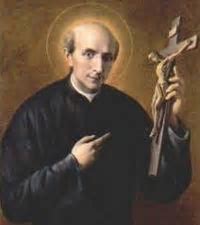PALLOTTINES [ SOCIETY OF THE CATHOLIC APOSTOLATE ] SAC
 The Society of the Catholic Apostolate (SAC) popularly known as Pallottine Fathers, was founded by St. Vincent Pallotti in 1835 at Rome, Italy. Under his direction, a group of clerics and lay people formed the Pious Union of the Catholic Apostolate, which received formal approbation in 1835. Its objective was to revive faith and charity in all Catholics and to diffuse these virtues throughout the entire world by prayers, labours, or other contributions.
The Society of the Catholic Apostolate (SAC) popularly known as Pallottine Fathers, was founded by St. Vincent Pallotti in 1835 at Rome, Italy. Under his direction, a group of clerics and lay people formed the Pious Union of the Catholic Apostolate, which received formal approbation in 1835. Its objective was to revive faith and charity in all Catholics and to diffuse these virtues throughout the entire world by prayers, labours, or other contributions.
As the membership increased and activities expanded, Pallotti saw the need for a group of priests who would devote their energies entirely to the work. Those who with him assumed this task, soon evolved into a society entitled Congregation of the Catholic Apostolate; it was to function as a connecting bond between the secular and religious priests, both of whom Pallotti desired to see labor side by side in all apostolic activities. Thus the society assumed a secular and a religious character: the secular was expressed by the absence of vows; the religious, by the observance of common life and promises. At first Pallotti did not favour constitutions or rules other than the Gospels, but he was constrained by experience to introduce them.
Despite papal approval, Pallotti’s work was seriously threatened. The Lyons Society for the Propagation of the Faith claimed that Pallotti’s work was merely duplicating its own program on behalf of foreign missions and had his society suppressed in 1838. When Pallotti clarified the situation for Gregory XVI, the decree of suppression was revoked. The words Catholic Apostolate raised objection from some who believed that the apostolate was reserved to the hierarchy. Four years after Pallotti’s death the controversy was settled by a decree (1854) that changed the name to Pious Society of Missions. The original title was restored in 1947, when the concept of the universal apostolate was better understood.
Because of the Roman Revolution, Pallotti’s death in 1850, and the change in title that obscured its nature, the society’s development was slow until 1880. However, by the turn of the century there were 30 houses in eight countries. In 1890 the Pallottines accepted a request to evangelise the African Cameroons, where by 1914 they had baptised 25,000 converts and were instructing 40,000 catechumens. By 1909 the society had over 500 members and was divided into four provinces. After World War I, it continued to flourish, and created in Germany the Schoenstatt movement, a Marian apostolic movement that implements Pallotti’s program.
The Society of the Catholic Apostolate (SAC)
The Society of the Catholic Apostolate (SAC)is an international community of priests and brothers, founded by St. Vincent Pallotti. His name is the reason for the popular name “Pallottines”. The official Latin name is Societas Apostolatus Catholici. The abbreviation SAC, stems from the first letters of this name.
of priests and brothers, founded by St. Vincent Pallotti. His name is the reason for the popular name “Pallottines”. The official Latin name is Societas Apostolatus Catholici. The abbreviation SAC, stems from the first letters of this name.
The Society has approximately 2,400 members, who live in over 300 local communities in more than 48 countries. The General Administration of the Society is located in Rome, Italy. In comparison to the size of other religious communities of men, the Pallottines would rank 17th. They speak more than 57 languages and, as an international community, the members use seven “official” languages: English, French, German, Italian, Polish, Portuguese and Spanish.The members, priests and brothers, bind themselves to the Society by the promises of chastity, poverty, obedience, perseverance, the sharing of resources and the spirit of service.
The Pallottines at St. Paul’s belong to the Epiphany province [Prabhu Prakash Province of India] which has its members working in UK, USA, Germany, Zambia, Italy, Australia.
The motto of the Society is rooted in the words of St. Paul
“The love of Christ urges us on.” (2 Cor: 5,14).

